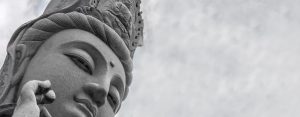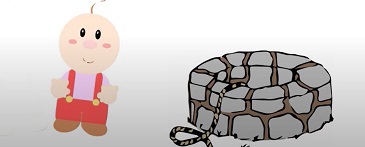佉 訶 囉 嚩 阿 kha, ha, ra, va, a, the five 種子 roots, or seed-tones of the five elements, space, wind, fire, water, earth respectively. From the Dictionary of Buddhist Terms by Soothill and Hodous: https://mahajana.net/texts/soothill-hodous.html
Category: chinese
Kwan Seum Bosal Chanting Part Four: Accomplishing the Great Aspiration of a Bodhisattva
Introduction If we pray to Kwan Seum Bosal to remove our “karmic obstructions” (as discussed in the previous section), well, what if it actually works? Once these karmic obstructions are removed, or at least reduced, what is it that we are now able to do. That is, what was, but now is not, being obstructed? […]
Kwan Seum Bosal Chanting Part Three: Eliminating Karmic Obstacles
Introduction So, let’s talk about bad karma. Bodhidharma (the founding teacher of Zen in China) taught that When those who search for the Path encounter adversity, they should think to themselves, “In countless ages gone by, I’ve turned from the essential to the trivial and wandered through all manner of existence, often angry without cause […]
Kwan Seum Bosal Chanting Part Two: Reciting the Name of the Bodhisattva
Introduction As the name implies, the core of “Kwan Seum Bosal Chanting” is the actual chanting of the name of the Bodhisattva of Compassion (Kwan Seum Bosal) over and over again. As a general rule, “Kwan Seum Bosal” should be repeated at least 108 times. The practice of reciting the names of various Buddhas and […]
Kwan Seum Bosal Chanting Part One: Homage / Prostrations
NOTE: This is the first of several posts on Kwan Seum Bosal Chanting. Links to all the other posts are at the bottom of this post (in the section on “Sources and Resources”) Introduction Kwanseum Bosal Chanting is a practice that comes from the Korean Buddhist tradition. I don’t know of any closely similar practices […]
The Heart Sutra Mantra
揭諦 揭諦 波羅 揭諦 波羅僧 揭諦 菩提 娑婆訶 a-je a-je ba-ra-a-je ba-ra-sung-a-je mo-ji […]
Mantra For Correcting Mistakes and Omissions (補闕真言)
There is a much shorter mantra in the Korean tradition with the same title. But this video is of a different, longer version used today in China. It is a really lovely video in which a mother is teaching the mantra to her daughter. 補闕真言 南無喝囉怛那,哆囉夜耶。 佉囉佉囉。俱住俱住。 摩囉摩囉。虎囉,吽。賀賀, 蘇怛拏,吽。潑抹拏,娑婆訶。 nā mó hē là dá nà […]
Getting Hold of the Ox
竭盡神通獲得渠 心強力壯卒難除
竭 jié exhaust; use up
盡 jìn end; finish; use up
竭盡 exhausted
神 divine
通 tōng pass through; expert; know well
神通 = Abhijñā (अभिज्ञा) direct knowledge; higher knowledge
“A cave and a grave are not two.”
心生故種種法生, 心滅故龕墳不二 “Because of the arising of thought, various phenomena arise; when thought ceases, a cave and a grave are not two.” Master Wonhyo 心 mind, thought 生 born 故 (gù) cause, reason 種種 (zhǒng zhǒng) all kinds of 法 dharma, thing 生 born 心 mind, thought 滅 (miè) destroy, extinguish 故 cause, reason 龕 […]
“All people have it, but the worthy are able to be consistent in it.”
Let’s look at two Chinese characters. Not two characters squished together to make one character, and not a “compound” character, either, but rather two separate characters one after the other that make a complete sentence. So here they are: 性善 (pinyin: xìng-shàn). The meaning of this sentence, which is one of the most important utterances […]




